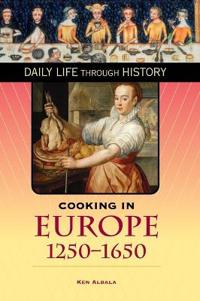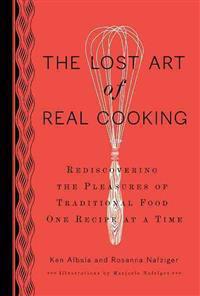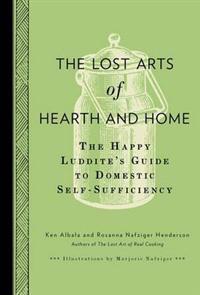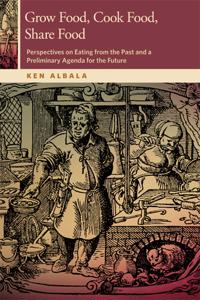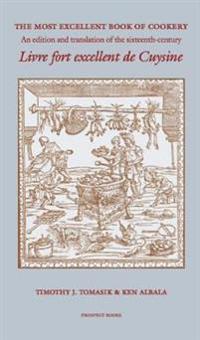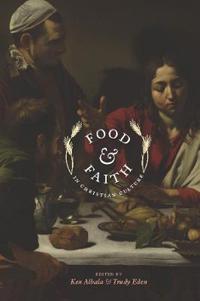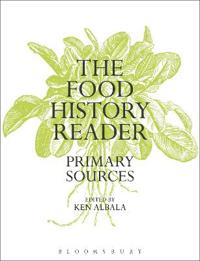Cooking in Europe (Inbunden)
avKen Albala
ISBN: 9780313330964 - UTGIVEN: 200606Ever get a yen for hemp seed soup, digestive pottage, carp fritters, jasper of milk, or frog pie? Would you like to test your culinary skills whipping up some edible counterfeit snow or nun's bozolati? This cookbook presents 171 unadulterated recipes from the Middle Ages and the Renaissance eras. Mo[...]
The Lost Art of Real Cooking: Rediscovering the Pleasures of Traditional Food One Recipe at a Time (Inbunden)
avKen Albala, Rosanna Nafziger, Marjorie Nafziger
ISBN: 9780399535888 - UTGIVEN: 201007
Read Ken Albala and Rosanna Nafziger's blogs and view their pictures on the Penguin Community.It's time to take back the kitchen. It's time to unlock the pantry and break free from the shackles of ready-made, industrial food. It's time to cook supper. "The Lost Art of Real Cooking" heralds a new[...]The Lost Arts of Hearth & Home (Inbunden)
avKen Albala, Rosanna Nafziger Henderson
ISBN: 9780399537776 - UTGIVEN: 201305"The Lost Arts of Hearth and Home" is not about extreme, off-the-grid living. It's for city and suburban dwellers with day jobs: people who love to cook, love fresh natural ingredients, and old techniques for preservation; people who like doing things themselves with a needle and thread, garden hoe,[...]
Grow Food, Cook Food, Share Food (Häftad)
avKen Albala
ISBN: 9780870717185 - UTGIVEN: 2013-10Grow Food, Cook Food, Share Food is a practical food history lesson, an editorial on our use of packaged convenience foods, and a call to arms--of the kitchen variety. Mixing food writing and history, adding a dash of cookbook, author and scholar Ken Albala shares the story of what happened when he [...]
The Most Excellent Book of Cookery (Pocket)
avTimothy J. (TRN) Tomasik, Ken Albala, Timothy J. (TRN) Tomasik
ISBN: 9781903018965 - UTGIVEN: 2014-04The Livre fort comprises about 70 pages of original French, with an English translation on facing pages. The translation is the work of Timothy J. Tomasik, Associate Professor of French, Valparaiso University, Indiana and Ken Albala, Professor of History at the University of the Pacific, Stockton, C[...]
Food & Faith in Christian Culture (Pocket)
avKen (EDT) Albala, Trudy (EDT) Eden, Ken (EDT) Albala
ISBN: 9780231149976 - UTGIVEN: 2011-11Without a uniform dietary code, Christians around the world used food in strikingly different ways, developing widely divergent practices that spread, nurtured, and strengthened their religious beliefs and communities. Featuring never-before published essays, this anthology follows the intersection [...]
The Food History Reader (Inbunden)
avKen (EDT) Albala
ISBN: 9780857854124 - UTGIVEN: 2014-08With the proliferation of food history courses and avid interest among scholars and the general public, the need for a solid comprehensive collection of key primary texts about food of the past is urgent. This collection spans the globe from classical antiquity to the present, offering substantive s[...]
The Food History Reader (Pocket)
avKen (EDT) Albala
ISBN: 9780857854131 - UTGIVEN: 2014-08With the proliferation of food history courses and avid interest among scholars and the general public, the need for a solid comprehensive collection of key primary texts about food of the past is urgent. This collection spans the globe from classical antiquity to the present, offering substantive s[...]

